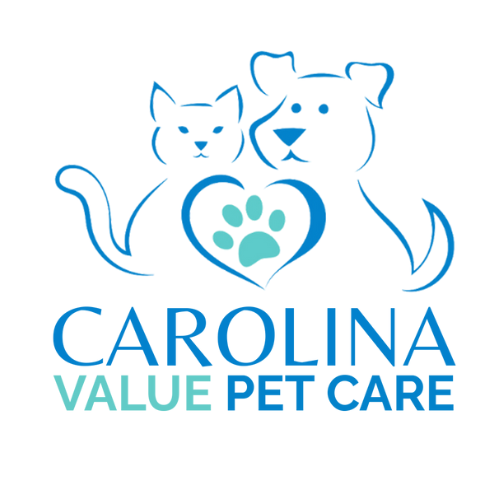Why is it important to deworm my dog?
It's important to deworm your dog for a couple of reasons. The main reason is that intestinal parasites like hookworms can be very uncomfortable and can be fatal to puppies. These parasites can cause your dog to feel unwell, but the good news is we can identify and treat different intestinal parasites.
Dr. Bob Parrish
Carolina Value Pet Care
What are some of the parasites found in dogs and how are they treated?
We commonly see four types of intestinal worms in dogs: hookworms, roundworms, whipworms, and tapeworms. There are also two different types of parasites that are not worms but live in the intestines, which are Giardia and Coccidia.
How do intestinal parasites impact the health and well-being of my dog?
The impact of intestinal parasites on your dog's health depends on a number of factors like the worm burden, the dog's constant exposure, and the age of the dog. In the worst-case scenario, your dogs can be very uncomfortable, start losing weight, and in some cases, we can see some blowout bloody diarrhea. We also see some puppies die due to hookworms.
Would I be able to see worms in my dog's stool?
You cannot see hookworms and whipworms in your dog's stool. However, roundworms can be seen and look like skinny pieces of spaghetti. Tapeworms look more like little grains of rice and can be seen crawling out of the rectum or in the stool.
How will a veterinarian diagnose intestinal parasites in my dog?
We use a stool sample to look for the eggs of roundworms, hookworms, and whipworms. However, tapeworms are unique as they do not lay eggs in the intestinal tract. Stool samples are not very helpful for finding if your dog has tapeworms.
What is the difference between natural remedies and over-the-counter dewormers compared to prescription medications?
Over-the-counter medications can be effective for roundworms and hookworms. However, when it comes to whipworms and tapeworms, you're not going to be able to find any effective natural product or over-the-counter product. We do have prescription medications that can effectively treat and prevent all four intestinal worms at the same time.
Dog Parasites - FAQs
Dr. Bob Parrish
Carolina Value Pet Care
How might a dog get worms?
Dogs and cats can get roundworms and hookworms from their mothers either through the placenta before birth or through milk while nursing. As adults, they can ingest the larvae of roundworms and hookworms from grass or when they lick their feet. Dogs can also get whipworms by ingesting their larvae. Both dogs and cats can get tapeworms either from ingesting a flea or eating a small mammal like chipmunks, mice, moles, squirrels, rabbits, and the like.
Are worms painful to dogs?
Worms can be painful to dogs, depending on the number they have. Roundworms and hookworms can cause discomfort in puppies or kittens, often resulting in a pot-bellied appearance. Whipworms can cause bloody diarrhea in dogs, and tapeworms can lead to an upset stomach and weight loss as they compete for nutrients.
Are worms visible in dog's stool?
Yes, two types of worms are visible. Roundworms, which look like thin spaghetti, can be seen in puppies' stool, and tapeworms, which look like grains of rice, can be seen in dogs' stool.
How common are worms in dogs?
The prevalence of worms in dogs depends on their lifestyle. Dogs that stay mostly indoors and are on heartworm prevention are less likely to have worms. However, dogs that often visit parks or stay outside, especially in the southeast, are almost certainly likely to have some type of intestinal worms.
How long can worms last inside a dog?
Worms live in the dog's intestinal tract and lay eggs that hatch, perpetuating the cycle. Unless the intestinal worms are eliminated, they will continue reproducing inside the intestinal tract.
What if my dog has worms and they go untreated?
If left untreated, worms can cause extreme discomfort, weight loss, and bloody diarrhea. In puppies and kittens, they can lead to anemia which can be fatal.
If you still have other questions and you'd like to reach out to us, you can call us directly at (704) 288-8620, or you can email us at info@cvpet.com. But please do reach out, and we'll get back to you as fast as we can. Don't forget to follow us on social media Facebook, Instagram
